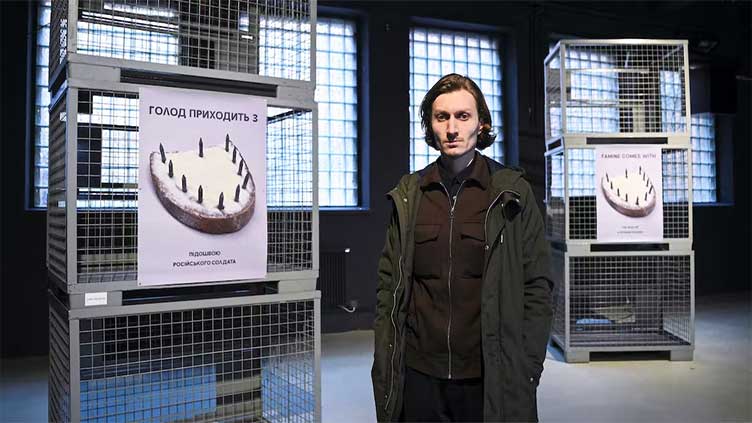Ukraine 'Art Weapon' show draws crowds in Berlin

Entertainment
Ukraine 'Art Weapon' show draws crowds in Berlin
BERLIN (Reuters) - In a converted former mint in Berlin on Saturday, crowds danced in a blaze of strobe light as a rapper hollered Ukrainian lyrics to punchy beats.
In other parts of the complex, revellers looked at painted bullet-proof vests hanging from the ceiling and queued for plates of Ukrainian dumplings and borsch served by women with blue and yellow ribbons weaved into their hair.
The ‘Art Weapon’ event - which opened at Berlin’s sprawling Alte Muenze complex on Saturday - also featured a live painting by Ukrainian artists, Ukrainian-language theatre and the chance to sit for a Ukrainian tattoo artist.
Running non-stop till Sunday morning, the marathon event sold more than 1,000 tickets two hours after opening, its organisers said. It’s the aim - to show that Ukrainian contemporary culture has been flourishing since the start of the war.
“The war boosted our artists and they are now super-passionate about what they are doing and understand their mission,” said Harry Pledov, the Kyiv-based organiser.
Pledov organised several festivals in Ukraine before the war and has held two such events in the country since Russia launched what it calls its “special military operation”. But curfews and blackouts in Ukraine made it increasingly difficult to continue.
He decided to apply for funding through a German organisation supporting cultural initiatives, allowing him to organise “Art Weapon” in Berlin.
In one room at the Alte Muenze, artist Vitalii Shupliak explained the meaning behind a work comprising two prints showing buttered bread with nails poking through the surface. The images are mounted on separate stacks of cages.
Reading “Famine comes with the sole of a Russian soldier,” the work represents both the impoverishment of Ukraine and the detached soles of Soviet-era military boots, Shupliak said.
“The invasion has definitely changed art in Ukraine,” he added. “It has forced us to reflect on our identities.”

